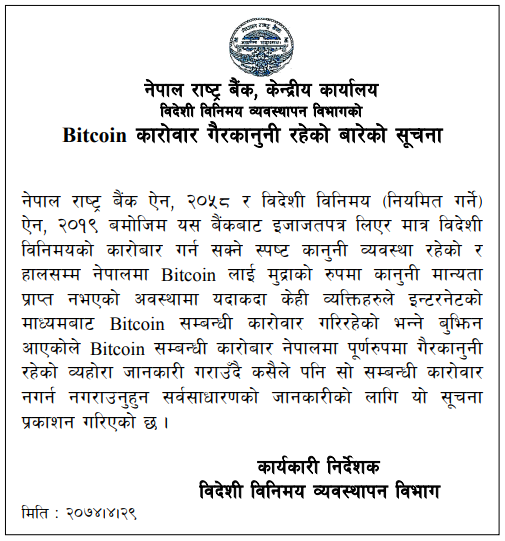These days, you must have been hearing a popular term which is often being used as the Digital Currency, "Bitcoin". It has made a huge impact in the financial sector throughout the world. But to this date, the person who has invented it, has not yet been identified; but goes by the name "Satoshi Nakamoto".
Announcing the first release of Bitcoin, a new electronic cash system that uses a peer-to-peer network to prevent double-spending. It’s completely decentralized with no server or central authority. – Satoshi Nakamoto, 09 January 2009, announcing Bitcoin on SourceForge.
Bitcoin started making its presence felt as of February 2015, when over 100,000 merchants and vendors accepted bitcoin as payment. Research produced by the University of Cambridge estimates that in 2017, there are 2.9 to 5.8 million unique users using a Cryptocurrency wallet, most of them using bitcoin. [source: wikipedia]
There are various other examples of Crytpocurrency such as "Ethereum", "Ripple", "Litecoin", "Monero", but the most renowned as of today is "Bitcoin". Bitcoin’s most important characteristic is that it is decentralized. No single institution controls the bitcoin network. It means that for a person with bitcoin, unlike any other conventional money, large bank can’t control their money. Similarly, Bitcoin account can be set up in minutes or even seconds, compared to Bank accounts and the most interesting part, no need to pay any extra fees nor questions asked. To sum up the greater advantage, we can send bitcoin anywhere and it will arrive minutes later as soon as bitcoin network processes it, and by stating "anywhere", I meant it literally, "anywhere", and transfers wouldn't cost any money, you send 2.0050 BTC and the other person would receive same amount.
But, it has not been easier to use Bitcoin in third world developing countries like Nepal. Recently on August 13th, 2017, Nepal Rastra Bank had announced as the transaction of Bitcoin is illegal in Nepal.
NRB had taken this step to prevent the fraud that a person can do via Bitcoin. In our country, where rules and regulations are not strict, and in this, if, a power where a person can do illegal activities and his/her record can't be traced, such thing is allowed to people, the country would be in the state of chaos and indiscipline. Bitcoin, a untraceable currency, the transaction can't be tracked and is a high risk for going outward remittance for buying bitcoins than inward remittance. Mostly dark web/deep web exclusively makes use of bitcoin to facilitate elicit activities, including drug trade and hitman on hire. It'd be difficult to handle such activities if Bitcoin is allowed to use freely.
Similarly, the sole purpose behind making Bitcoin illegal is that, the Government can't impose tax on the digital currency Bitcoin. As each user of Bitcoin has their own virtual market, government can't make people using Bitcoin to pay tax.
But the notice published by the NRB has not been taken positively to public. Though most of the people in Nepal are unknown about digital currency and its advantages, but to some people who are into it are unsatisfied with the action taken by the Government. The local newspaper, Kathmandu Post has stated its thought as;
Nepal Rastra Bank has already made it clear in its notice dated August 13, 2017 that all transactions related to or regarding Bitcoins are illegal. But it allied Bitcoins to “Foreign Exchanges”, though Cryptocurrencies have no foreign central authority to regulate them. This is where the confusion is. Bitcoin is a decentralised digital currency that is traded from one individual to the other, not through banks. It has no issuing or regulating country, and these bitcoins are converted into US dollars simply because dollars are used as an international exchange rate. [source: ekantipur]
In the present context of Nepal, where the country is in financial instability state, the flow of cryptocurrencies may not be suitable to handle, but the financial regulations could have researched on how the country's finance could have been developed by the use of digital currencies. Digital currencies could surely make exchanges and transactions easier.
However, regarding the present situation of Nepal, where political instability is a long term problem, and because of lack of awareness among people, a future where digital currency is sure to hit the financial market of the world, people of Nepal will be experiencing it in a lot later and at the time, we would still be left behind.
It's good that you wrote it yourself. Never stop writing, you will succeed one day for Sure !
The key is be consistent